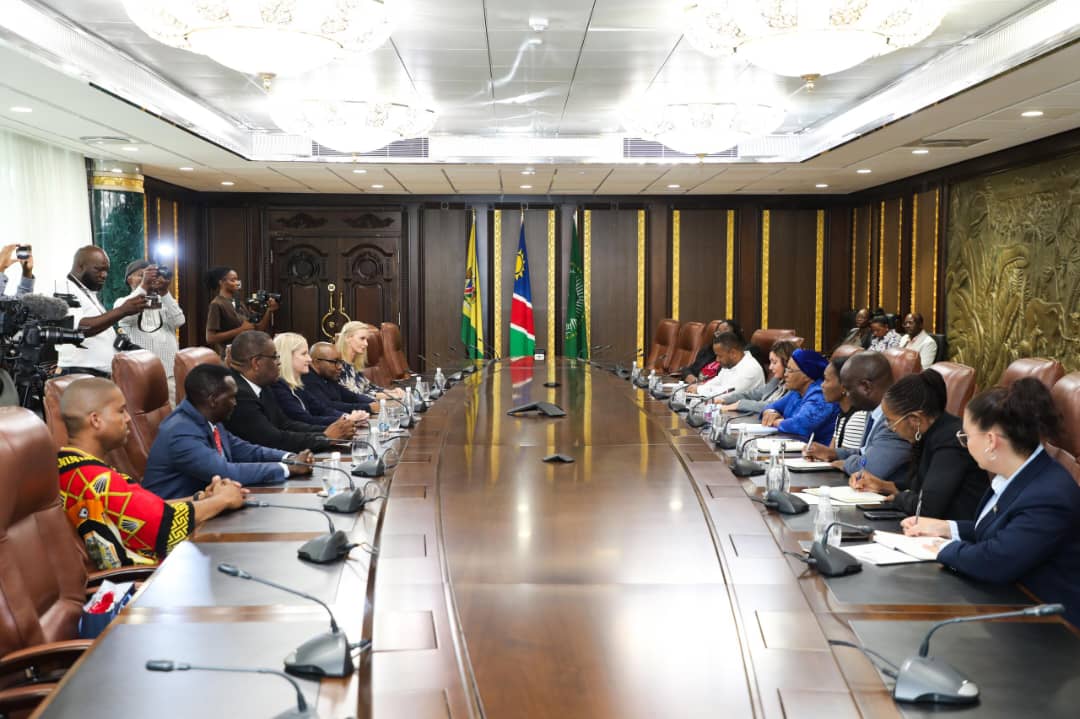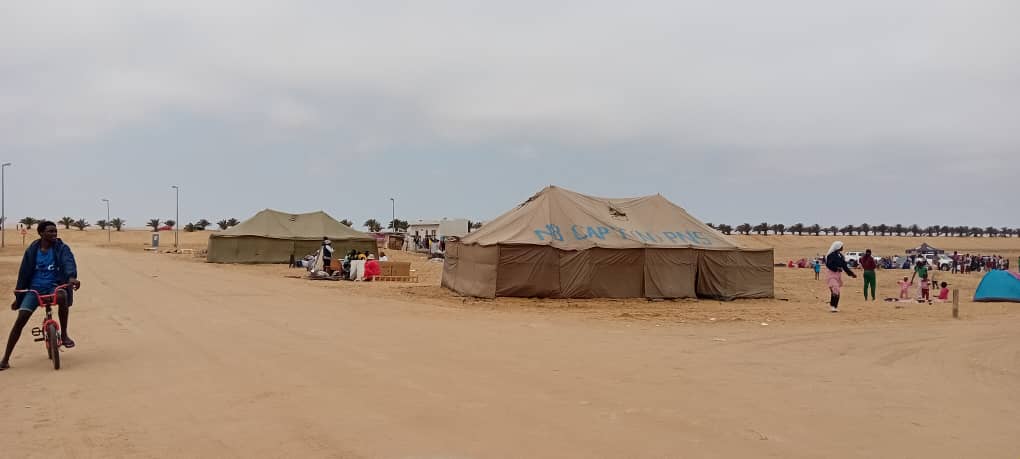The issue of inter-country adoption made front-page news in The Namibian of September 24. This piece is intended to provide information to the public about inter-country adoption as the issue is more complicated than it may seem at first.
INTERNATIONALLY, inter-country adoption is a relatively recent phenomenon dating from World War II when many countries were left with war orphans but lacked the resources to provide alternative care within the country. Inter-country adoptions became increasingly popular in the 1970s and 1980s, as a measure aimed at alleviating the plight of couples unable to conceive. This led to abuses such as child trafficking and ‘baby markets’, resulting in greater international efforts to return the child to the centre of the picture and to establish mechanisms to prevent abuses of the process. In Namibia, recent legal developments layered on top of the outdated Children’s Act 33 of 1960 have left the Ministry of Gender Equality and Child Welfare between the proverbial rock and a hard place. In the 2004 Detmold case, the High Court found that the prohibition on the adoption of children born to Namibian citizens by non-Namibian citizens in the Children’s Act was unconstitutional. In that case, the applicants were German citizens and permanent residents of Namibia who were applying to adopt a child who had already been in their foster care for several years. They had been found suitable to be adoptive parents, and the child’s biological mother had consented to the adoption. The only obstacle to the adoption was their citizenship. The Court found that the rule on citizenship violated Article 10 of the Namibian Constitution, which guarantees the equality of all persons before the law, and Article 14, which protects the family. The Court found that a family is ‘the best vehicle for bringing up children’, and that the next best thing to a biological family is an adoptive family, saying that it is therefore society’s duty ‘to make possible, and not hinder or frustrate, a family for every child given up for adoption’. It found that the strict prohibition on adoption by non-Namibian citizens was unconstitutional because it could deprive a child of the possibility of being adopted into a secure and stable family that might not otherwise be available to the child. This case sits alongside the Convention of the Rights of the Child and the African Charter on the Rights and Welfare of the Child. Namibia is a party to both of these international agreements, meaning that they are by virtue of Article 144 of the Namibian Constitution ‘part of the law of Namibia’. Both of these agreements state that inter-country adoption may be considered as an alternative means of providing care for the child – if the child cannot be cared for in the country of origin in any suitable manner. The African Charter calls inter-country adoption a ‘last resort’. Both agreements require governments to take measures (a) to ensure that the safeguards and standards for inter-country adoption are equivalent to those for national adoption; (b) to ensure that placement in inter-country adoption does not result in trafficking or improper financial gain for anyone involved; and (c) to promote bilateral or multilateral arrangements to regulate inter-country adoption. Thus, a social worker who recommends an inter-country adoption without first attempting to find adoptive parents for the child within Namibia is violating international commitments made by Namibia. The situation is complicated by inadequate procedures in the Children’s Act which currently governs adoption. Because private social workers can make reports to the courts recommending adoptions without channelling these through the Ministry of Gender Equality and Child Welfare, the Ministry is faced with completed adoptions without previously having a chance to see if local options for the child were properly considered. Furthermore, this law does not give the Ministry any right to appeal an order of adoption. Ministerial consent was previously required for the limited exceptions to the prohibitions on adoption by foreigners, but this safeguard fell away when the Detmold case invalidated that provision in its entirety. Yet the regulations issued under the Act give the Ministry, in its role as the Registrar of adoptions, a duty to ensure that the correct rules and procedures have been followed in respect of all adoption orders. So the existing procedures for inter-country adoption have large gaps, which can (as in the present case) leave the Ministry in the position of being expected to register an inter-country adoption even where it is not clear to the Ministry that local alternatives have been exhausted. The Ministry is in the process of making the final revisions to a proposed new Child Care and Protection Act which will replace the outdated Children’s Act. The Legal Assistance Centre has been acting as technical adviser to the Ministry on this process, which is being supported by UNICEF. This Act is expected to pave the way for Namibia to ratify the Hague Convention on Inter-country Adoption, which is widely viewed as being the best mechanism for preventing abuses in this field. The Hague Convention does not encourage inter-country adoption – quite the contrary, it says that inter-country adoption should take place only if authorities have determined that this would be in the child’s best interests, and possibilities for placement of the child within the country of origin have been given due consideration. The Hague Convention also provides mechanisms to ensure that an inter-country adoption will be recognised in the country to which the child is going, so that the adopted child does not end up stateless in some foreign country. It also provides for cooperation between authorities in both the sending and receiving countries, to provide for proper monitoring and control. The Legal Assistance Centre strongly recommends that Namibia becomes a party to the Hague Convention as the best way to regulate inter-country adoption – which should be an extremely rare alternative for Namibian children. The forthcoming Child Care and Protection Act would also provide other safeguards, such as setting qualifications for which social workers can handle adoptions, requiring that all social worker reports on adoption must be sent to the Channelling Officer appointed by the Minister before the matter goes to court, establishing a register of prospective adoptive parents within Namibia and limiting fees which can be charged in connection with arranging adoptions. Inter-country adoption should not provide any scope for baby shopping. Parents from the England, the United States of America or anywhere else in the world cannot come to Namibia to ‘pick’ a child that they would like to adopt. (An example of this misconception can be seen in the recent statement by Sir Elton John, who reportedly said that he would like to adopt a specific child from Ukraine.) Adoption is not supposed to be about seeing a child and saying that you want it – it is supposed to be about providing for the best interests of child through the matching of the child to a family, not the family to the child. There are some rare situations where a child may be placed for adoption only with a specific prospective parent for some good reason, but this should not be the norm.Similarly if not carefully handled and regulated, inter-country adoption can lead to baby-buying, where parents desperate for a child are prepared to pay enormous sums of money to ‘baby brokers’ who can source a child for them. This is a form of child trafficking which must be guarded against – Namibian children should not be made available to the highest bidders. There is no doubt that these problems will threaten Namibia. The Legal Assistance Centre has already received multiple enquiries about inter-country adoption, just because the term appears in an obscure part of our website in connection with discussions around the draft Child Care and Protection Bill. Although there is a role for inter-country adoption, we believe that
Namibia generally has the capacity to care for its own children. So what to do in the meantime? We suggest that, as an interim measure, until the new law and the Hague Convention are in place, that Commissioners of Child Welfare and social workers throughout the country be officially reminded of their legal obligation to ensure that local alternatives have been considered ahead of any inter-country adoption. There is already an existing agreement between the Ministry and private social workers to channel all reports concerning inter-country adoption through the Ministry before they are laid before the court, so that the Ministry can assist with finding and assessing local options; this agreement should be honoured, and Commissioners of Child Welfare should not accept reports that have not been channelled through the Ministry. The current difference of opinion is really the fault of a flawed system. The forthcoming Child Care and Protection Act should repair those flaws and make the process clearer and smoother for all concerned, with the focus securely on the best interests of the child.
Stay informed with The Namibian – your source for credible journalism. Get in-depth reporting and opinions for
only N$85 a month. Invest in journalism, invest in democracy –
Subscribe Now!










